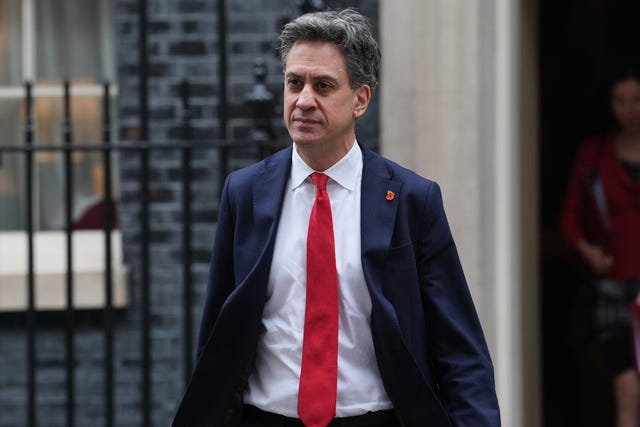Projects that aim to speed up the energy transition in developing countries will receive a share of £79 million in UK climate finance, the Government has announced.
The money will support clean power innovation in countries on the front line of the climate crisis, including African nations and small island states.
Unveiling the funding commitments at Cop29 in Azerbaijan on Friday, Energy Secretary Ed Miliband said it will support “the world’s most vulnerable” and unlock the global growth benefits of decarbonised economies.
The funding will go towards innovations in low-carbon technologies, energy storage, zero emission generators and clean transport as well as innovations to decarbonise the steel, chemicals, cement and concrete industries.
It includes £45 million going to the World Bank’s energy sector management assistance programme, which helps support developing and emerging countries address energy challenges.
The UK’s national innovation agency Innovate UK will also receive £15 million to support clean energy innovation in developing countries.
And £14 million will go to the UN Industrial Development Organisation to support projects in industrial decarbonisation and clean hydrogen, while £5 million has been ringfenced to help developing countries tackle methane emissions in their fossil fuel.

“That’s why we are determined to lead from the front and drive global change, to protect future generations at home and abroad.”
The Environment Department said the UK has also helped to set the direction of voluntary carbon markets at Cop29, so they can channel more finance to developing countries.
This includes a new set of UK integrity principles, which will raise integrity in the generation, trade and use of carbon and nature credits.
Governments are currently trying to iron out a new global finance climate agreement at Cop29, with top experts saying at least one trillion US dollars will need to be flowing into developing countries each year by 2030 in order to meet the 2015 Paris Agreement goals to limit dangerous global warming.





